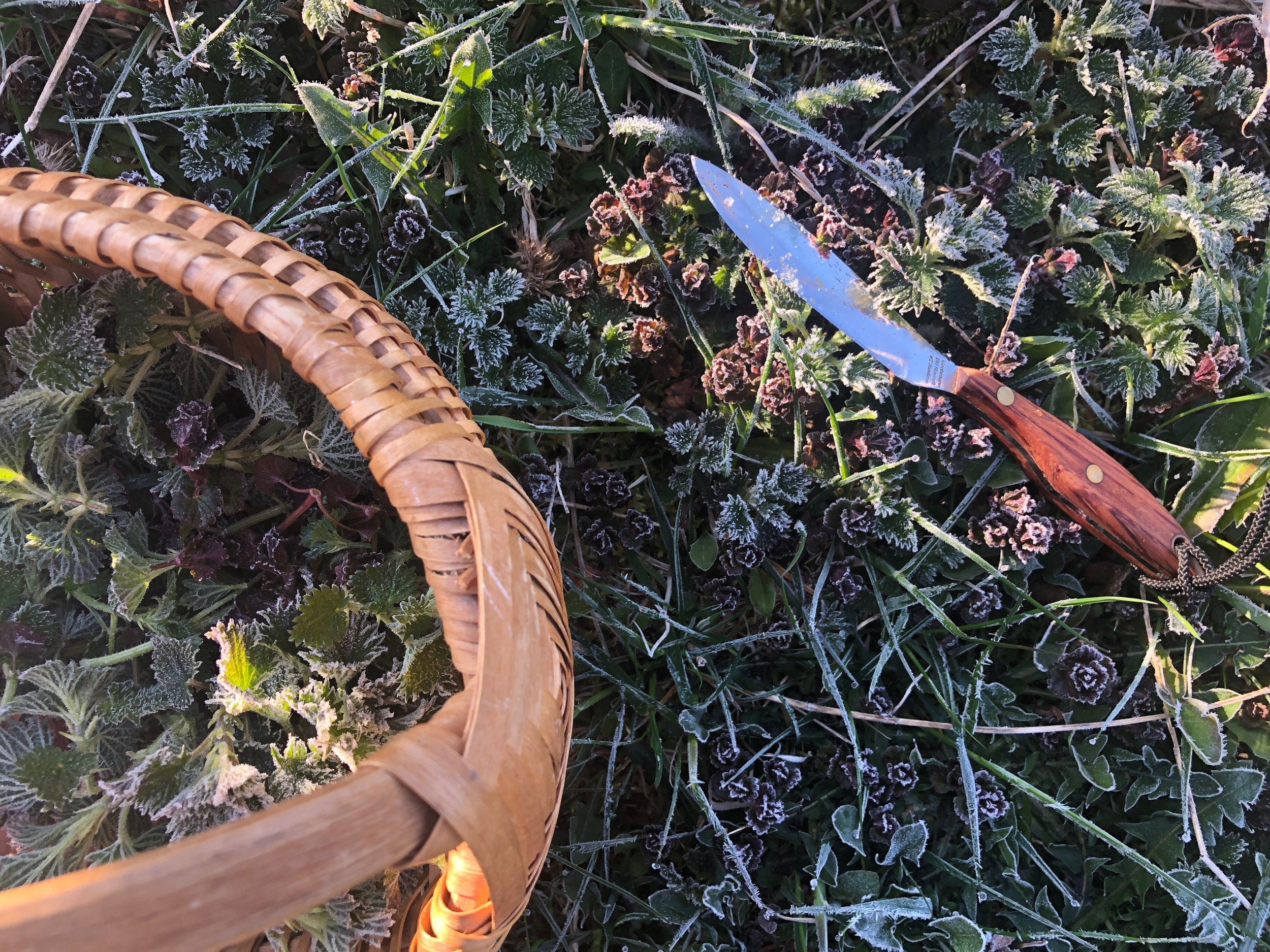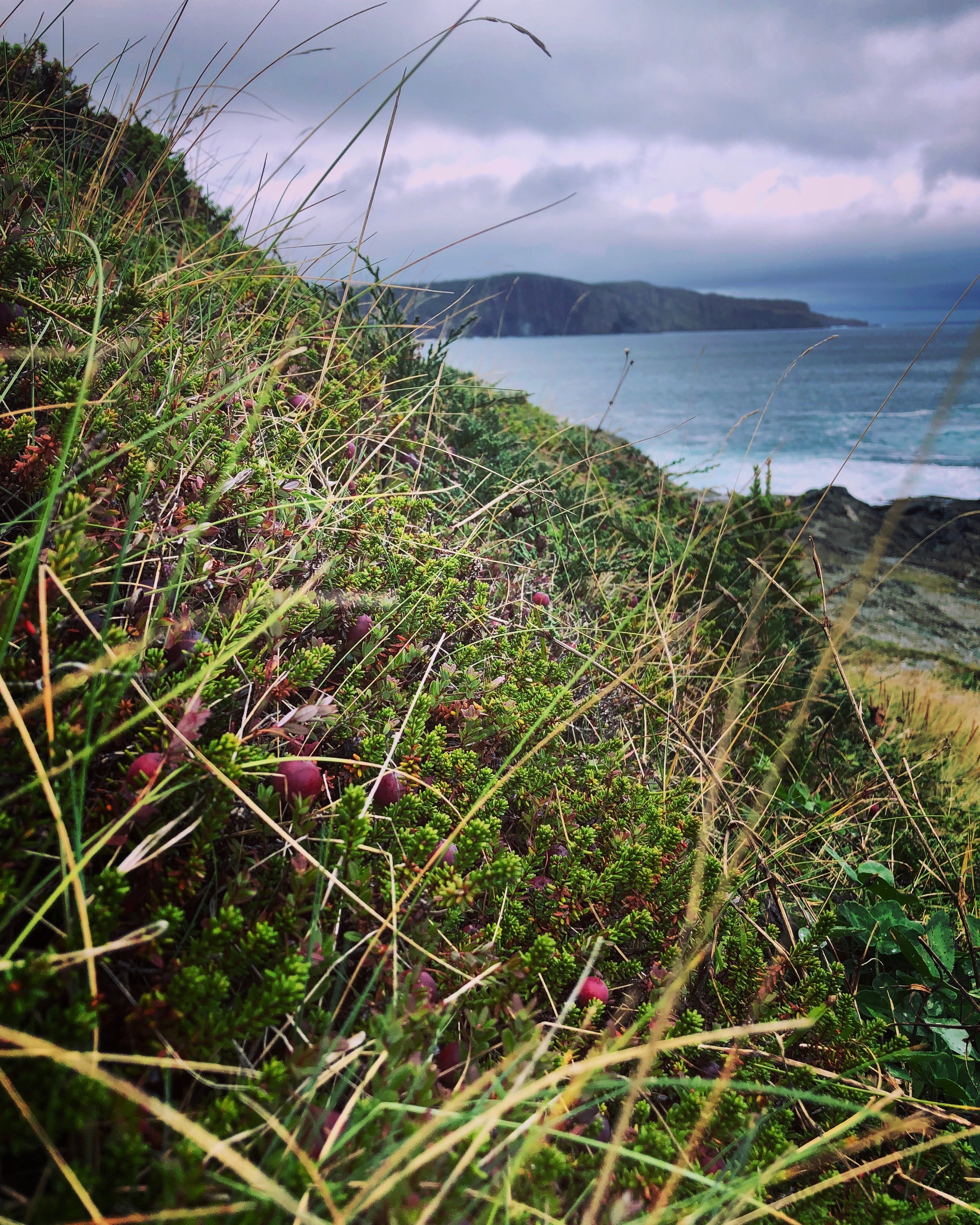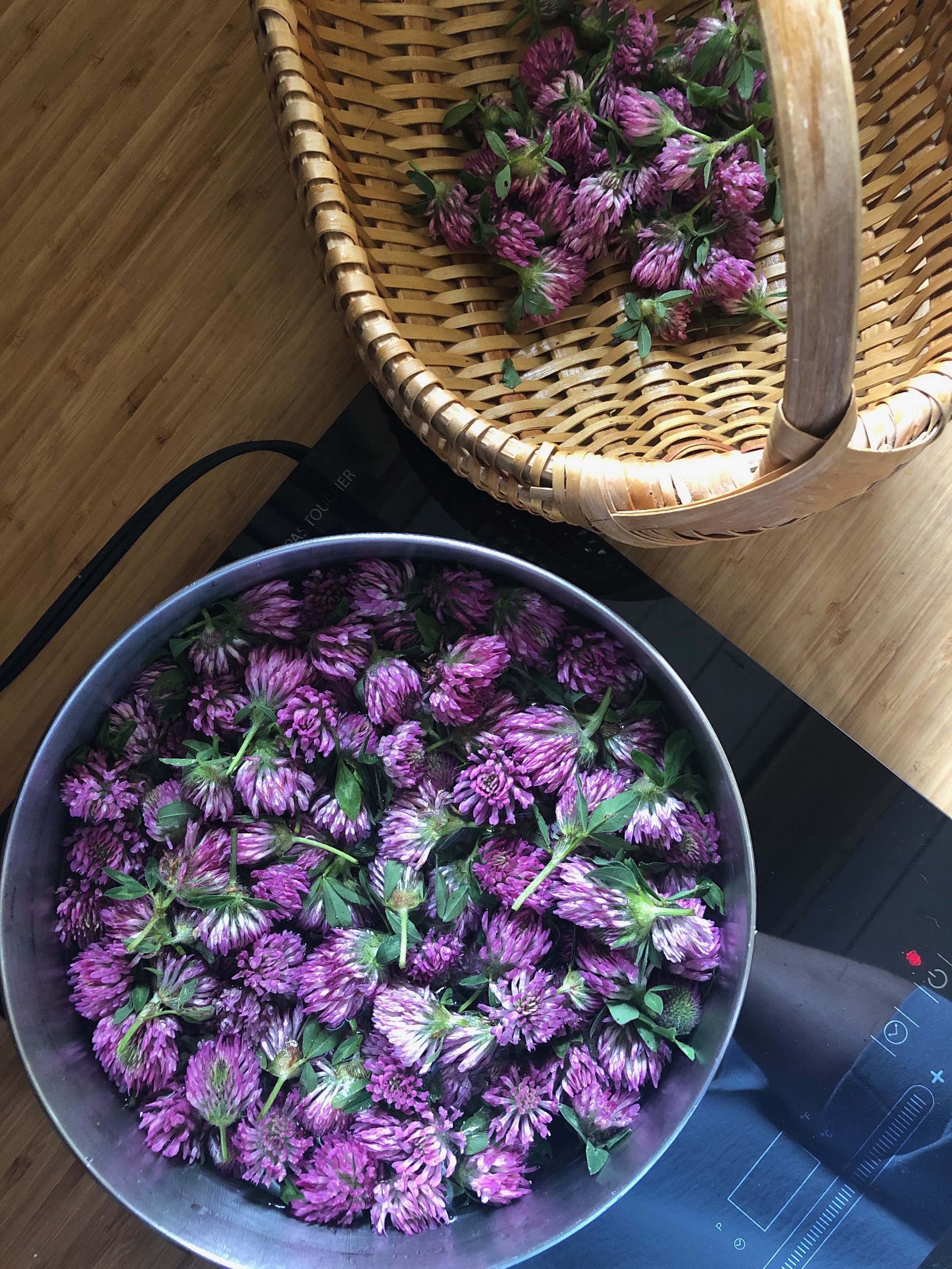Words by Connie Boland ~ Photos by Marsha Tulk
Gathered together
Connecting to people and places through traditional food gathering
Tray of rosehips
Foraged tea making
I remember the smell of my grandparent’s root cellar, the pungent aroma of dirt and potatoes dug by hand from their garden on a chilly fall day. I can still see my grandmother, bent over at the waist, yanking weeds that dared to grow in her flower garden. When I peel the carrots my children will eat for dinner, I hear the thud of root crops tossed into a five-gallon bucket as I follow my grandfather down the long rows of his vegetable patch. And I fondly recall picking wild red raspberries, warmed by the sun, fat and ripe, juice trickling down my chin.
Dirt under my fingernails reminds me of sunshine, black turf and childhood memories. It smells like home.
Lori McCarthy, of Food Culture Place, understands exactly what I’m talking about. The cultural food ambassador, educator and storyteller remembers berry picking in much the same way that I remember it. “From a child’s perspective, it was out running around eating berries all day with your mom and your nan and your aunt. It was a normal part of life,” she says.
A space for connection
Berry picking is practically a rite of passage in Newfoundland and Labrador. It’s a tradition passed down from generation to generation that, alongside other types of foraging, is currently seeing a rise in popularity. Foraging includes searching, identifying, and collecting food from nature, including herbs, fruit or mushrooms. There’s a bit of research involved to ensure that what you’ve found is edible, but at its core, foraging is about connecting to nature, being self-sufficient and supplementing food sources.
For those who grow up traipsing through the woods searching for wild edibles, the practice often falls by the wayside as we grow older, have families, and move away from our hometowns. “I hear that from people all the time,” McCarthy says. “My perspective now is that being in the woods was about spending time with people. It didn’t matter what we did, where we went, or what we picked. When I look back at it now, it was about the time I spent with my nan and my aunt, because you never get that time back.”
To help keep the tradition alive, McCarthy makes it a priority to spend time in the forest with her children. “They won’t understand until they’re older,” she says. “But as much as they might complain about the trip or the flies, the heat, the sunburn or whatever, they won’t remember any of that when they get older. What they will remember is that it was special.”
Special—like how I remember sitting down with my large extended family to a supper of cod fish, caught by my grandfather, and the potatoes we pulled from the garden. There was homemade raspberry pie for dessert, the berries picked under the majestic Blow Me Down Mountains. On the day that Elvis Presley died, back in August 1977, I was trudging over bogs and sitting on brambles with my grandparents when news of his death came to us on the wind, broadcast over the car radio that was turned up so that we could hear the weather. Bucket perched at my feet, I was squat in a berry patch, eating as many raspberries as I could. “Don’t eat more than you pick,” my grandmother reminded me. “We need berries for the winter.”
Shifting mindsets
What many Newfoundlanders and Labradorians refer to as “going in the woods,” a new generation of nature lovers call “forest bathing.” What we call “berry picking,” they call “foraging.” Either way, the result is the same—a sense of connection to the people and places around us.
“I think we are trying to reconnect or connect for the first time in some circumstances. I think we want to be a part of something bigger than ourselves and foraging is a part of that,” McCarthy muses. “I think the shift is global, and it has a lot to do with people who are in my age demographic. I see people who grew up the same way that I did, people who are experiencing a kind of disconnection from what they knew.”
As a cookbook author and passionate promotor of wild Newfoundland cuisine, McCarthy leads workshops to pass along the knowledge she’s learned. She works tirelessly to preserve the province’s food culture, and she lectures about sustainable, traditional food gathering. She believes the shift toward foraging reaches beyond Newfoundland and Labrador, and that it has an interesting catalyst.
“The pandemic played a role,” she adds, referring to the increase in food foraging. “I think COVID really solidified how it was for us to be out on the land, and in nature. COVID brought a new appreciation for slowing down. A lot of wretched, horrible things happened during the pandemic, but I also find that we all did slow down, and we started to see things differently,” she says. “It’s like we started to appreciate things more. We started to want to have that human connection, and I think spending time in nature with people you know is a part of that.”
Food Culture Place
foodcultureplace.ca
@foodcultureplace
Connie Boland is an award-winning freelance journalist, creative writer, and Adult Basic Education Instructor from Corner Brook, NL.
Marsha Tulk is a photographer, recipe developer and award-winning author of Food Culture Place. foodcultureplace.ca | @foodofgeneration
This story appeared in Issue #1 of edible Newfoundland & Labrador, Summer 2023





